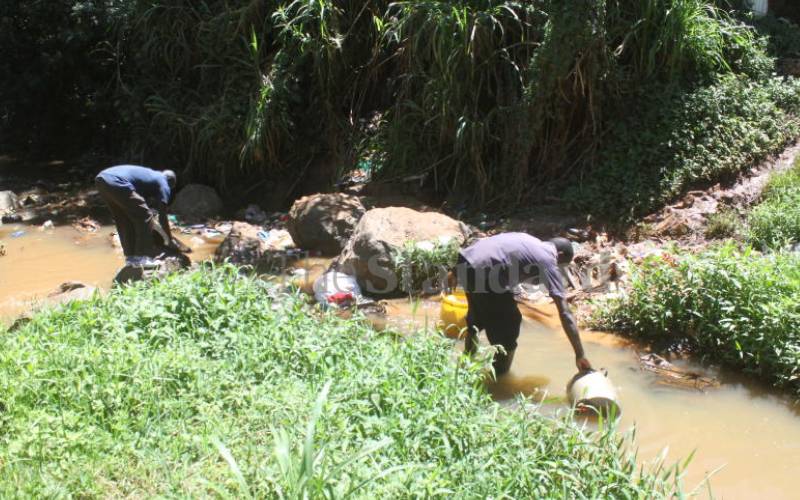×
The Standard e-Paper
Stay Informed, Even Offline

Men fetching water from Nyakomisaro river, Kisii County at Daraja Moja, 2017. [Sammy Omingo, Standard]
The once-flowing rivers in Kisii and Nyamira counties are slowly dying. It is a situation that has now left Eveline Moige of Bouti village in Kitutu Central worried as she recalls the gradual decline of the volume of water in the rivers in the last 20 years.